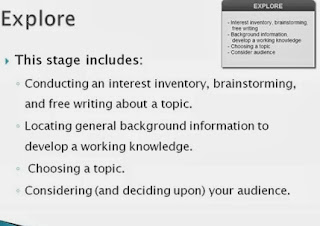The
business of being a research student is finally at hand. The 3 day induction
was reasonably painless. The process of putting together a research paper is
just that, a process; however; there are obstacles along the way. The first
hurdle is slightly disconcerting. Having been accepted on the program on the
basis of a proposal and an interview involving a 10 min power point
presentation and 20 min of questions, one has to submit a fresh proposal in the
guise of what is referred to as an ATR, an Application to Register. It cannot
be any longer that the 1000 word proposal already submitted. It is in effect a
more refined version of the initial proposal. The ATR’s are presented to two
committees or RDCs (Research Development Committee) - one at Falmouth and the
other at the University of the Arts London, under whose auspices Falmouth
University must continue to function until Falmouth receives its own licence
for accreditation of PhD degrees.
Thus,
having been enrolled at Falmouth as a PhD student from the 25th
September, if the Application to Register is turned down, what is one supposed
to do. It feels a bit of a con. One is
encouraged to apply and pay the dues, only to have to re-apply with what is
suggested is a more refined version of the initial application.
Whilst
I understand that a research project must be focused on as specific an argument
as one can muster, it seems a bit of a swiz to go through the process of
refining the first 1000 words into yet another 1000 words which run the risk of
being knocked back. One goes through considerable time and expense to be
accepted, only to find one has to go through the whole thing again on the basis
that it is a more considered application. More expense and time. It feels a bit
like double jeopardy.
If
the initial expression of interest, proposal and interview are not sufficient,
what is the point of them? Why not say from the outset that acceptance on the
research programme is a four stage process:
1-
Expression of Interest
2-
Initial Proposal
3-
Interview
4-
Application to Register.
Only
after one has been accepted from stage four, should one be enrolled. It seems a
very cumbersome process.
 I understand
the need to hone one’s research question into something manageable and
indicative of some degree of original thinking on a subject, but that is
presumably what the first year of a PhD is about, and the supervisors’ job is
to guide the student towards that end.
I understand
the need to hone one’s research question into something manageable and
indicative of some degree of original thinking on a subject, but that is
presumably what the first year of a PhD is about, and the supervisors’ job is
to guide the student towards that end.



















